SAA Leadership and Key Stakeholders Convene for Strategic Discussions on Wheat Promotion in Karamoja
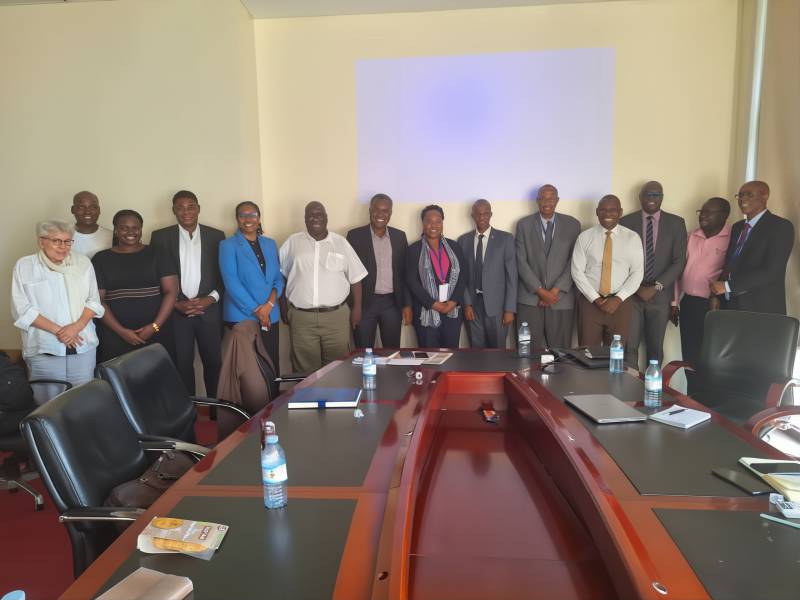
On Thursday 27th June 2024, Sasakawa Africa Association (SAA) leadership team, led by Uganda Country Director Robert Anyang and Nigeria Country Director Dr. Godwin Atser, held strategic discussions with key stakeholders regarding wheat promotion in the Karamoja region.
This crucial meeting featured notable participants included Dr. Jemal Mahmud, Operations Team Leader for Agricultural Infrastructure at the Islamic Development Bank, and officials from the Office of the Prime Minister, such as Assistant Commissioner Programmes, Emmy Tony Ameny and Assistant Commissioner Norbert Katsirabo.
Other distinguished attendees included Ambassador Phillip Idro. Presidential Adviser from Operation Wealth Creation , Millennium Promise Alliance Country Director David Siriri, ICRISAT Director Rebbie Harawa , Dr Bashir Jamal. Lead Adviser & Coordinator of food security Program and consultant for IsDB dryland project (11) in Karamoja and Prof. Dr. Brigitte Fahrenhorst of the Berlin Institute of Technology (TU Berlin) and Chair of the Society for International Development Berlin.
Presentation Highlights
Robert Anyang, Country Directer of SAA Uganda, delivered an insightful presentation on SAA’s extension models, emphasizing the success of the One Stop Center Association (OSCA) model in fostering agricultural development and sustainability in the Karamoja. Dr. Jemal Mahmud lauded the pioneering work of Dr. Norman Borlaug in wheat cultivation, setting a positive tone for enhancing agricultural productivity in the region. A key focus of the meeting was on the Islamic Development Bank's second phase of financing for dryland farming in Karamoja, aimed at transitioning farmers from subsistence to commercial agriculture.
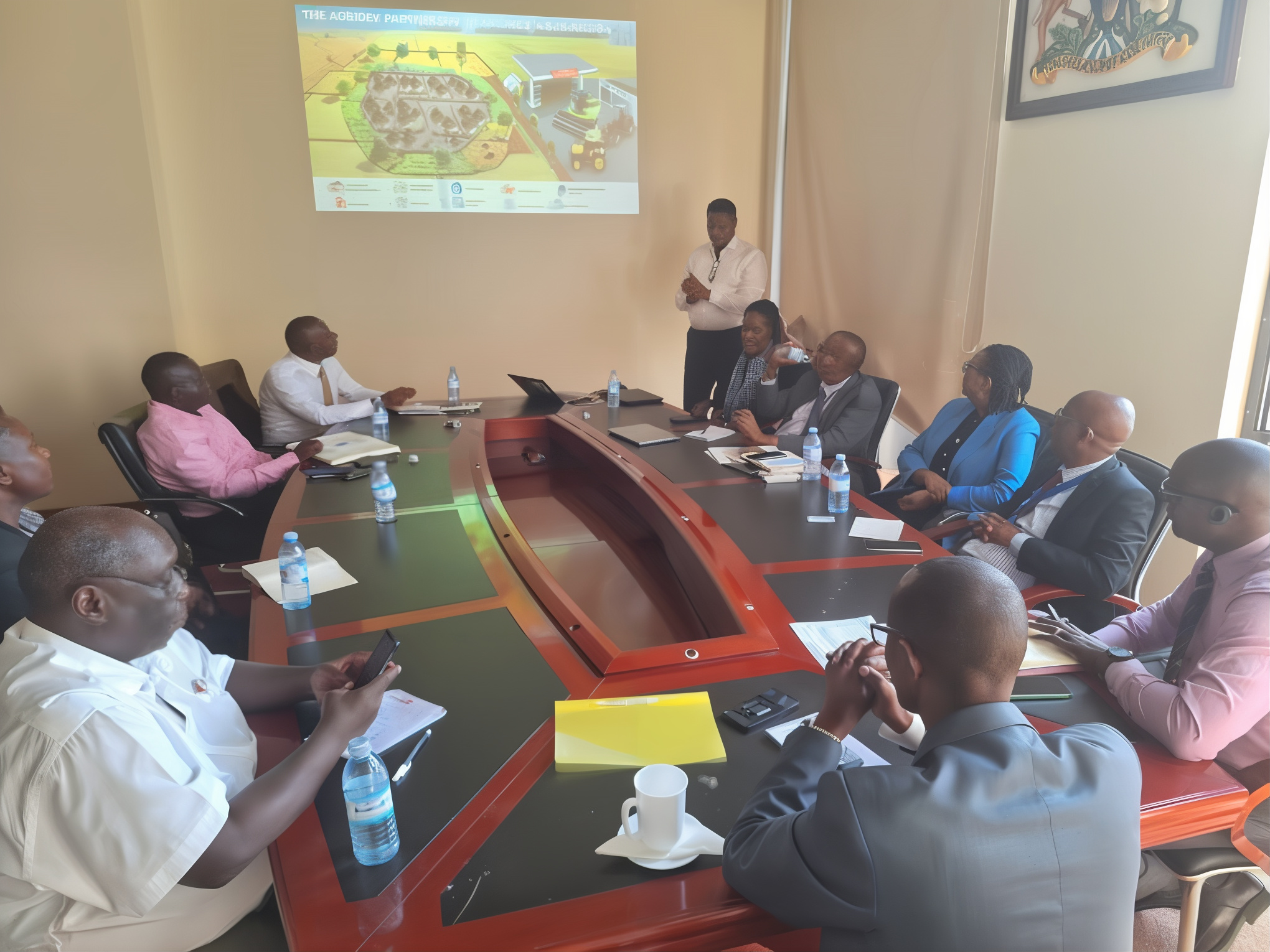
Mr. Robert Anyang making a presentation during the meeting
Key Discussions and Interventions
Tony Ameny, Assistant Commissioner of Programs from the Office of the Prime Minister, underscored the importance of water harvesting as a crucial intervention, particularly in dryland areas. This comprehensive intervention is expected to significantly impact not only in Karamoja but also neighboring regions such as Sudan and the Democratic Republic of Congo. The primary areas of focus included crop production, with an emphasis on wheat, millet, and sorghum, as well as livestock and mechanization. These efforts are anticipated create employment opportunities for the youth, thereby mitigating rural-urban migration and contributing to regional stability.
Operational Structure and Cooperative Formation
The attendees also discussed the operational structure, which will involve the formation of cooperatives to ensure collaborative approach to agricultural development. ICRISAT shared their ongoing efforts to build a model around anchor farmers for this project, highlighting the promising results of their trials. Notably, two varieties of sorghum have been developed that require minimal rainfall, making them ideal for Karamoja's arid conditions. These varieties will be promoted through contract farming arrangements.
Sustainable Value Chains and Regional Stability
By integrating both perennial and annual crops, as well as livestock, the project aims to establish sustainable value chains with the overarching goal of fostering peace and security in Karamoja by addressing the root causes of instability. The initiative will involve collaboration between the government, the private sector, and non-governmental organizations to ensure a multi-faceted and inclusive approach to development.
Commitment to Transform Karamoja
This meeting reflected the shared commitment to transforming Karamoja's agricultural landscape, signaling the potential for a more prosperous and stable future for the region. The government’s commitment is awaited through the approval of the proposed interventions upon assessment and alignment with the Karamoja Development Plan currently under review.
SAA Publications
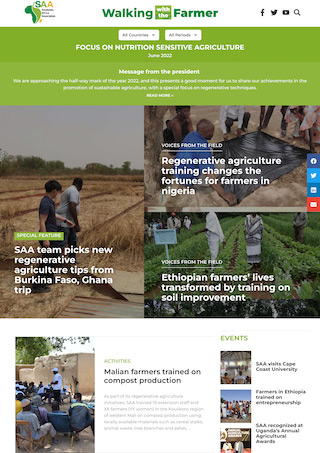
E-newsletter
"Walking with the Farmer"
SAA publishes a bimonthly e-newsletter reporting on SAA activities.
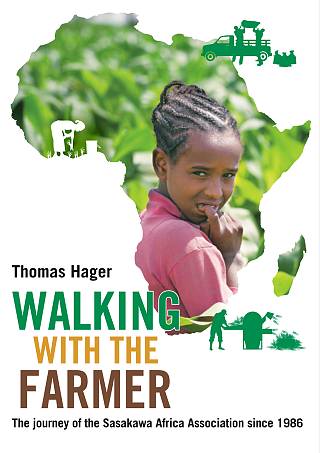
SAA history book
"Walking with the Farmer: The journey of the Sasakawa Africa Assoication since 1986"
This book chronicles the history of SAA from its inception to the present.
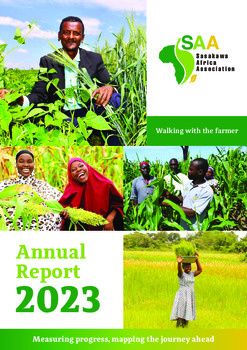
Annual Report
Annual Report FY2023
Annual Report FY2023 is available here.




